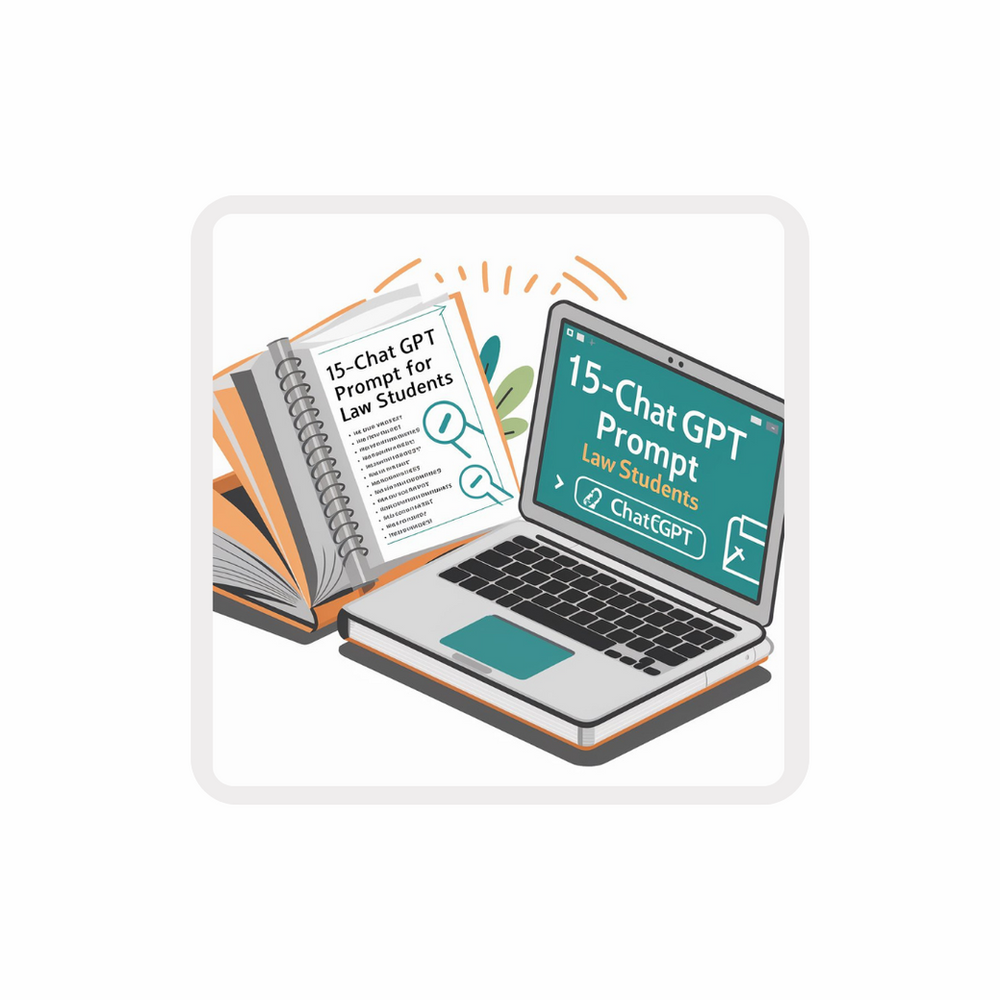
Here are 15 detailed prompts on how a law student can use Chat GPT:
1. Case Summaries: "Summarize the landmark case [Case Name]. Include a detailed overview of the parties involved, the lower court’s ruling, the facts of the case, the legal question or issue, the court's decision, and its rationale. Provide excerpts from the judgment, discuss any concurring or dissenting opinions, and outline the case's broader impact on legal precedent and practice."
2. Legal Precedents: "Identify and analyze legal precedents relevant to [specific legal issue]. For each precedent, provide the case name, court, year, and citation. Discuss the facts, procedural history, legal reasoning, and the outcome. Explain how the precedent has been applied in subsequent cases and its potential influence on future litigation."
3. Legal Terminology: "Define the legal term '[term]' in the context of [specific field of law]. Describe its historical origin, typical usage in legal documents, and interpretations by courts. Provide examples of how the term is used in landmark cases or legal principles and its implications in legal arguments."
4. Hypothetical Scenarios: "Create a complex hypothetical legal scenario involving [legal issue]. Outline the parties, their positions, and relevant facts of the scenario. Pose specific legal questions, and analyze potential legal arguments, available defenses, and possible outcomes based on existing case law and statutory provisions."
5. Comparative Legal Analysis: "Compare and contrast the legal approaches of [Country A] and [Country B] on [legal topic]. Examine the historical, cultural, and political factors that shape their legal systems. Discuss key similarities and differences in legislation, court structure, and judicial interpretation, including notable cases in each jurisdiction."
6. Legal Argument Construction: "Assist me in constructing a well-reasoned legal argument for [position on legal issue]. Provide a step-by-step approach, including identifying key issues, gathering relevant evidence, organizing legal precedents, and citing applicable statutes. Offer strategies for effectively countering opposing arguments and enhancing persuasiveness."
7. Statutory Interpretation: "Explain the various methods of statutory interpretation, such as textualism, originalism, purposivism, and the golden rule. Provide case examples where each approach has been used, and analyze how different courts have applied these methods to reach their decisions."
8. Legal Writing Tips: "Provide comprehensive legal writing tips for drafting [type of legal document]. Discuss the importance of clear and concise language, logical organization, and proper citation format. Offer strategies for incorporating relevant case law and statutes, and ensuring adherence to legal standards and style guides."
9. Current Legal Developments: "Provide a thorough analysis of the latest legal developments in [specific area of law]. Examine recent cases, legislative changes, and emerging trends. Analyze how these developments may impact current legal practice and potential future cases."
10. Historical Legal Context: "Provide an in-depth historical overview of [legal principle or law]. Discuss its origins, evolution over time, and significant milestones. Analyze how societal, political, and cultural shifts have influenced the development of the principle or law and its application in modern legal practice."
11. Court Decisions: "Summarize the key points from the recent court decision in [case name]. Include an in-depth review of the court's reasoning, interpretation of legal principles, and potential long-term effects on similar cases. Provide notable quotes from the opinion and analyze any significant dissents or concurrences."
12. Legal Ethics: "Discuss ethical considerations and dilemmas in [specific legal practice area]. Examine relevant codes of conduct, professional standards, and notable cases of ethical breaches. Provide guidance on how to navigate ethical challenges while upholding the integrity of the legal profession."
13. Exam Preparation: "Offer comprehensive strategies for effectively preparing for law exams. Provide tips on organizing study materials, creating outlines, and identifying key concepts. Suggest methods for practicing with past exams, understanding professor expectations, and managing time during the exam."
14. Statute Drafting: "Provide detailed guidance on drafting clear and effective statutes for [legal issue]. Discuss the importance of specificity, clarity, and consistency in language. Outline the process of organizing the statute, defining terms, and structuring provisions to avoid ambiguity and legal challenges."
15. Legal Research Techniques: "Discuss advanced methods for conducting legal research on [specific legal topic]. Outline how to identify relevant case law, statutes, regulations, and secondary sources. Provide tips on utilizing legal databases, research tools, and proper citation practices to build a comprehensive and persuasive legal argument."
Hey, Attention law students!
Ready to level up your game?
Say goodbye to missed opportunities
Get instant updates on internships, jobs, and law Competitions.
Join our vibrant legal community with 5000+ members already onboard!
Click here for WhatsApp Groups (Click HERE) and Telegram Channel (Click HERE). and get timely updates.
Don't wait, join the coolest legal crew now!





